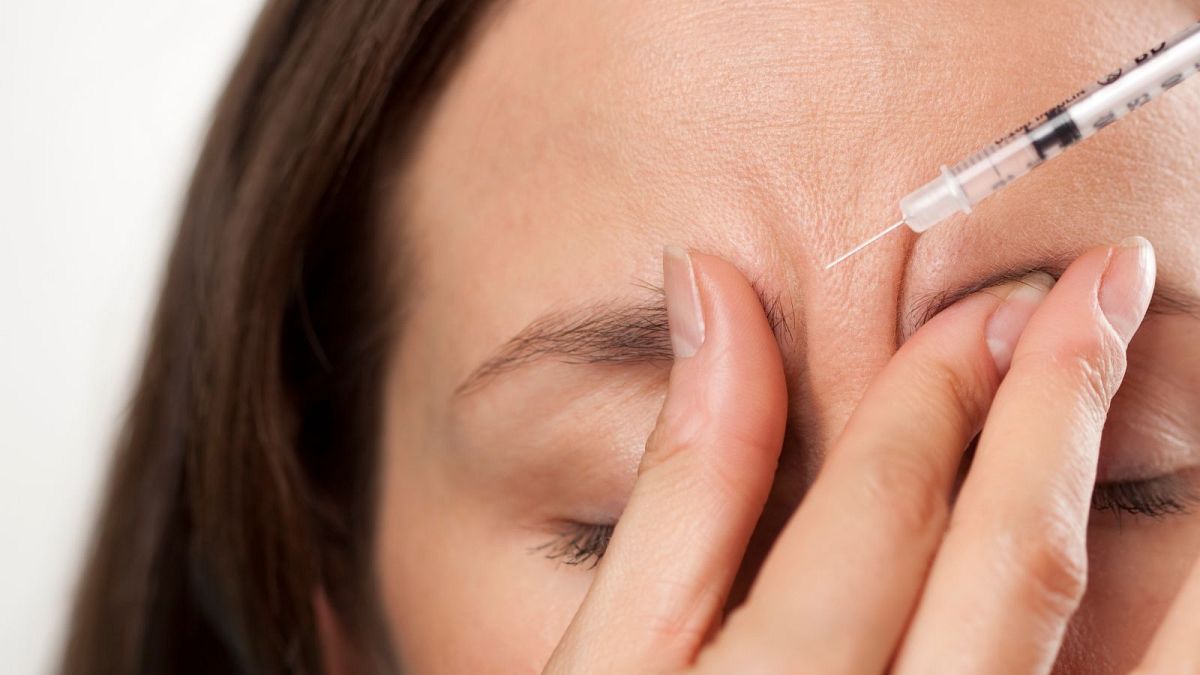Researchers are calling for better regulation of the aesthetics injectables industry.
More than two-thirds of cosmetic practitioners (68 per cent) who are administering aesthetic injections, such as Botulinum Toxin (Botox), in the UK are not qualified medical doctors, a new analysis has found.
The study, published in the Journal of Plastic, Reconstructive & Aesthetic Surgery, is the first to examine the providers of cosmetic injectable services like Botox and dermal fillers - which are carried out to reduce wrinkles and smooth lines on the face.
Researchers from the University College of London (UCL) evaluated 3,000 websites to pinpoint 1,224 independent clinics and 3,667 practitioners administering cosmetic injections.
The results revealed a diverse array of practitioner backgrounds. They found that 32 per cent were doctors; 13 per cent were nurses, 24 per cent were dentists, and 8 per cent were dental nurses.
Limited information was previously available regarding the background qualifications, training, and experience levels of the professionals administering these treatments.
“The key issue relates to the fundamental principle of competence,” said Dr David Zargaran, a specialist at UCL plastic surgery and author of the study.
He added that it is “essential for the practitioner to be competent in performing the procedure and to be able to recognise and treat potential complications,” which include blindness and paralysis.
“Dental assistants, for example, wouldn’t understand those complications,” added Professor Julie Davies from the UCL Global Business School for Health, noting that nurses, dentists, and dental nurses “are not licensed, so they haven't been to the right courses”.
Understanding of the human anatomy, surgical skills and managing complications are part of the training process such as in plastic surgery, oral and maxillofacial surgery, and dermatology, Zargaran argued.
Of the 1,163 doctors identified to carry out treatments, some 41 per cent were specialists, with plastic surgery and dermatology being the most common.
The UK injectables market is rapidly growing, expected to reach a value of £11.7 billion (€13,48 billion) by 2026, but “at the moment the market is so far ahead of the regulators, which is often the case in the industry,” said Davies.
The findings from the UCL researchers could play a pivotal role in shaping amendments to existing regulations.
While many countries currently allow medical professionals such as nurses or dentists to perform cosmetic injections, sometimes with an extra certification, some, such as France, restrict the practice to doctors.
The UK government is preparing to update its policy around these treatments, with a public consultation on the cosmetic surgery industry due to begin this August with recommendations expected to be included in the Medical Act by 2024.
A 2021 McKinsey report said the global aesthetic injectables industry had grown by more than 10 per cent a year historically and could grow from between 12 to 14 per cent per year over the next five years.
The report predicted that the industry could be worth $11.9 billion (€10.7 billion) in 2026.
Informal cosmetic injectable procedures also an EU problem
Two hundred aesthetic surgeons urged French authorities in May to ban over-the-counter dispensing of lip augmentation products in pharmacies.
The public request, made in a statement published in French daily newspaper Le Parisien by the National Union of Plastic, Reconstructive, and Aesthetic Surgery (SNCPRE), emphasised that injections provided by non-medical professionals often led to severe and irreversible complications, and in some cases, life-threatening risks.
“The victims of these illegal injections are sometimes left disfigured for life and suffer severe psychological trauma,” says SNCPRE in the statement, adding that many of them were afraid to report the incidents due to threats and physical intimidation.
In France, surgeons also reported witnessing instances where the individuals themselves, including minors, self-administer the products following “questionable instructions” found in online videos.
“Given the seriousness of this illegal practice, plastic surgeons advocate for stricter controls over the sale and distribution of hyaluronic acid and other injectable filling products, ensuring they are only accessible to qualified medical professionals authorised to perform such procedures”.
Similarly, the Spanish Society of Aesthetic Medicine (SEME) highlighted their growing concern about the "intrusion in medicine" this February and introduced a digital seal for authorised clinics.
Doctors report that many unauthorised ‘clinics’ operate without accreditation. The digital seal is expected to empower citizens to quickly and safely identify authorised clinics when looking online.
Earlier this month, the same group of UCL researchers published a separate study which looked at adverse events following the administration of Botox for aesthetic purposes. Around 69 per cent of respondents said they had experienced adverse effects following the procedure, including pain, anxiety, and headaches.
In addition, 84 per cent of respondents said that they did not know who regulated the aesthetics industry in the UK, and 92 per cent reported that their clinic or practitioner did not inform them about the Yellow Card Reporting Scheme, a system used in the United Kingdom for reporting and monitoring adverse drug reactions.
“The issues presented pose a challenge on a near-global scale,” Zargaran told Euronews Next.
He is wary that it will be a challenge to enforce international guidelines due to variations in legal proceedings and jurisdictional boundaries, but “there are some fundamental principles that need to be addressed to make the aesthetic injectables market safe in any country. This includes ensuring that practitioners are competent to a defined standard,” he said.
Zargaran emphasised that the public should also be aware of the potential risks and “make sure they do their research on their practitioner”.
Currently, UK law does not offer any protection or stipulations regarding who is and isn’t allowed to practice the administration of cosmetic surgery injections.



